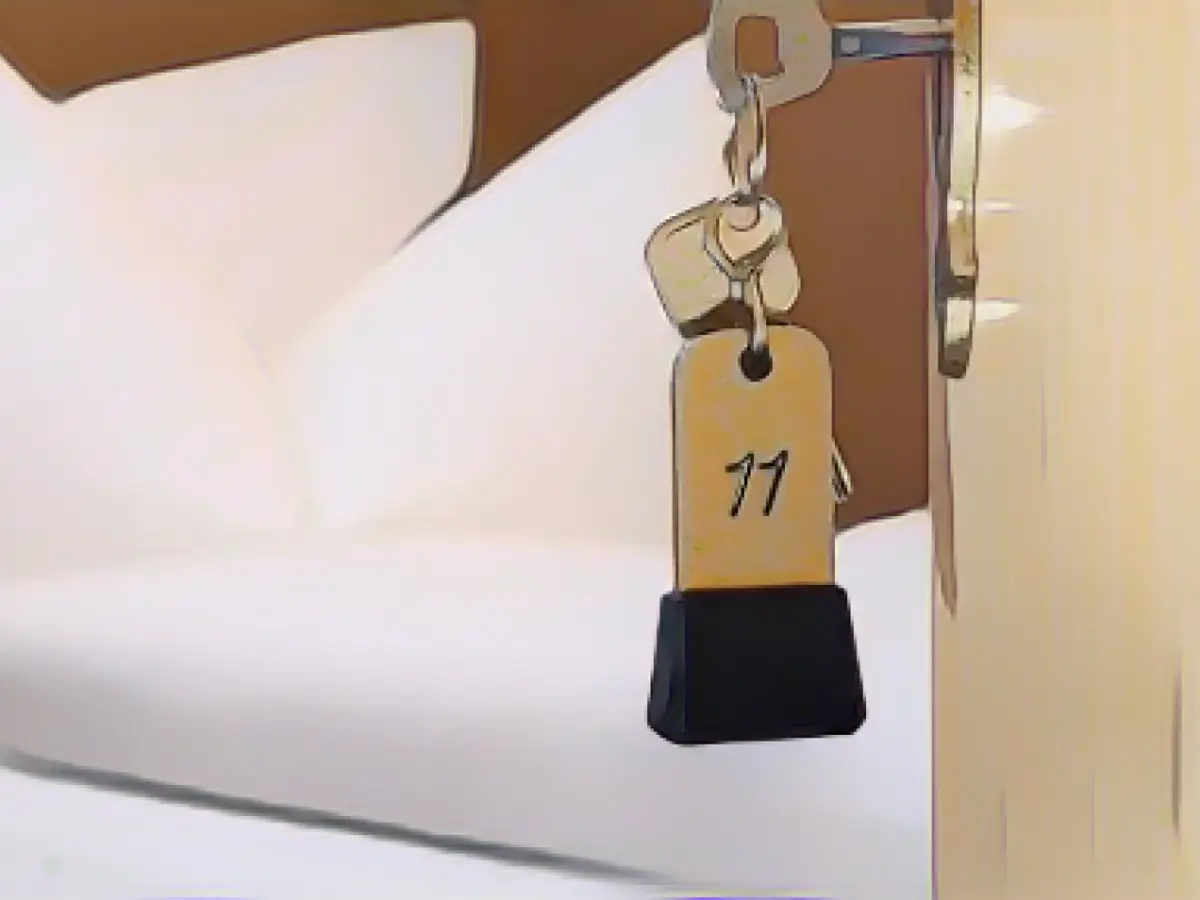Tourism - Bed tax to be extended in several major NRW cities
Tourists and business travelers will have to pay a bed tax on the price of overnight stays in more major cities in North Rhine-Westphalia. From January 1, 2024, the state capital of Düsseldorf will levy such a municipal tax for tourists and business travelers, which has not existed here until now. In the cities of Münster and Bonn, the bed tax that already applies to tourists will be extended to business travelers from 1 January 2024. In Cologne, such an extension is planned for the middle of the new year.
The bed tax has already been extended to business travelers in Dortmund and Wuppertal. Münster, Bonn and Düsseldorf have now been added as a result of the extension of the regulation or the new introduction. This means that from the beginning of 2024, both tourists and business travelers will have to pay the tax in a total of five of the ten largest NRW cities, according to the survey conducted by Deutsche Presse-Agentur. From the second half of 2024, this will be the case in six of the ten largest cities in North Rhine-Westphalia.
The bed tax has also been limited to tourists for some time in the largest city in the state, Cologne. It will be extended to business travelers from 1 July 2024, as the city council decided in December, said a city spokesperson. Overnight stays for business purposes have so far been exempt from the "cultural promotion tax" - as the bed tax is known in Cologne. Like Düsseldorf, Cologne is an important trade fair location that attracts numerous trade fair visitors with its major events.
In May last year, the Federal Constitutional Court put an end to years of wrangling over municipal taxes. It ruled that these are compatible with the German constitution. In addition, the judges in Karlsruhe gave the green light for an extension to business travelers, who had previously been exempt.
While a bed tax will be levied in six of the ten largest NRW cities from 2024 as a result of the new introduction in Düsseldorf, there are still no plans for such a tax in Essen, Duisburg, Bochum and Bielefeld, according to spokespersons.
There are also differences in the amount of the bed tax: Düsseldorf has set a fixed amount of three euros per person per night. There had been heated discussions in the run-up to the decision because this would affect overnight stays in youth hostels as well as overnight stays in luxury hotels. Minors and school trips have therefore been exempted from the bed tax. The Düsseldorf bed tax is not as high as originally proposed, when five euros per person per night was being discussed. There are also exemptions in Münster, for example, particularly for school trips.
In other major NRW cities with a bed tax, a percentage of the overnight price of five percent is usually payable. In Bonn, the tax will rise to six percent from 2024. Previously, it amounted to five percent of the amount spent on accommodation in the federal city, including VAT. In Dortmund, 7.5 percent of the accommodation fee is payable. In Münster, the bed tax amounts to 4.5 percent of the accommodation price.
For the local authorities, the levying of the bed tax means considerable income, which, according to earlier information from the NRW Association of Cities and Towns, makes an important contribution to paying for infrastructure projects for tourism and business trips locally. Düsseldorf, the second-largest city in the federal state, expects to generate 11 million euros from the bed tax for its municipal budget in 2024.
Regulation Wuppertal Revenue overview Cologne Regulation Münster Regulation Dortmund Regulation City of Cologne Communication on the Düsseldorf council decision Extension of the tax in Bonn Regulation Dortmund
Read also:
- A clan member is punished here
- Traffic lawyer warns: Don't talk to the police!
- Will he be convicted as Jutta's murderer after 37 years?
- He also wanted to kill his cousin
- The extension of the bed tax to business travelers in Bonn and Münster will bring the total number of major NRW cities with this tax to three, joining Dortmund and Wuppertal by January 1, 2024.
- In Düsseldorf, a city known for its trade fairs and attracting numerous visitors, the new bed tax will be set at three euros per person per night, with exemptions for minors and school trips.
- The German Press Agency reported that the bed tax will not be implemented in Essen, Duisburg, Bochum, or Bielefeld, as of now, despite plans to extend it to business travelers in several major cities in North Rhine-Westphalia.
- In contrast, Cologne, another significant city in North Rhine-Westphalia, has already imposed a bed tax on tourists and plans to extend it to business travelers from July 1, 2024, generating considerable income for the municipal budget.
- The Federal Constitutional Court's 2021 ruling stated that municipal taxes like the bed tax are compatible with the German constitution, specifically allowing for an extension to business travelers, who previously enjoyed an exemption.
- According to the North Rhine-Westphalia Association of Cities and Towns, the income generated from bed taxes plays a vital role in financing infrastructure projects for tourism and business activities in the local municipalities.
- Beginning in 2024, six of the ten largest cities in North Rhine-Westphalia, including Düsseldorf, Cologne, Bonn, and Münster, will levy a bed tax on both tourists and business travelers, with varying tax rates depending on the city.
Source: www.stern.de








